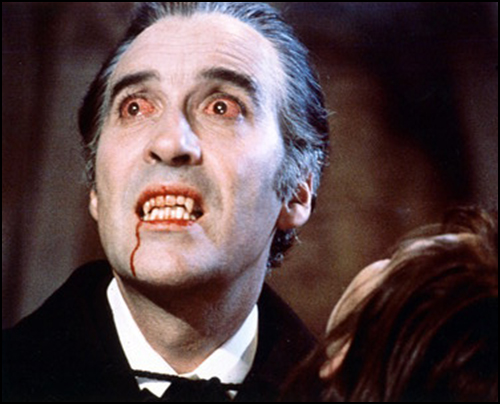The Voice of Saruman, Speaking the First Age Into Being
Friday, June 22, 2007
posted by Steve Tompkins
 Print This Post
Print This Post
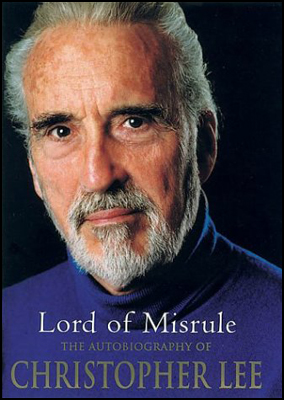
Marvel Comics initiates are well aware that the madder the Hulk gets, the stronger the Hulk gets. Similarly, the older Christopher Lee gets, the cooler Christopher Lee gets. Long before Saruman and Count Dooku (alas, a role as a nefarious guest star on the cover of Band on the Run had more substance to it than Lee was granted in the Lucasverse), n’er-do-wells were never done so well as Rochefort in Richard Lester’s The Three Musketeers and The Four Musketeers (I sob openly when Michael York runs him through), Francisco Scaramanga in The Man With the Golden Gun (Lee, a cousin of sorts to Ian Fleming, was on the author’s wish list of perfect Dr. Nos) and Lord Summerisle in the original The Wicker Man (actually the only Wicker Man that need concern us). Lee was Flay in the BBC’s Gormenghast miniseries, worked with members of Steeleye Span on a musical adaptation of The King of Elfland’s Daughter, and once confessed to John Carpenter that his career-worst misstep was turning down the role of Dr. Sam Loomis in Halloween. The expanded and splendidly retitled 2004 version of his autobiography, Lord of Misrule, is required reading.
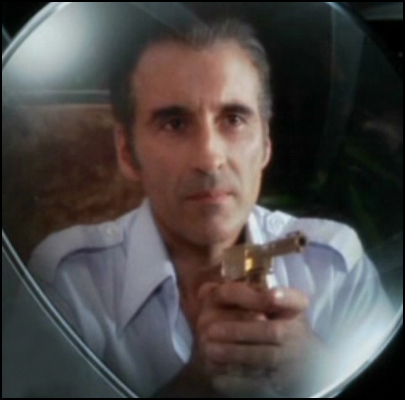
On his commentary track for the Extended Edition DVD of The Return of the King, Peter Jackson tells the following story about the death of Saruman (which the film perforce relocated from the doorstep of Bag End to the tower of Orthanc):
When I was shooting the stabbing shot with Christopher, as a director would I was explaining to him what he should do when Wormtongue stabs him in the back — like sort of the air’s escaping out of you. And he says, “Peter, have you ever heard the sound a man makes when he’s stabbed in the back?” And I said, “Um, no.” And he says “Well, I have, and I know what to do.” And of course when you question him for more information, you find out at he’s still under the Official Secrets Act, ‘cuz he was a commando in World War Two, and there were things happening with Christopher that he’s never talked about and he’s not allowed to talk about. He knew the sound of the air escaping and the groan, the type of groan emitted. And that’s what you’re actually getting in the film [Extended Edition] the authentic recreation.
Before we continue I should say that I admire the strict constructionism of the distinguished gentleman from Cimmerian Central’s aversion to Jackson’s 3 LOTR films, but for me they offer an often-brilliantly designed, directed, and declaimed version of the source material, whereas Conan the Barbarian is no version of anything at all save Milius and Stone’s utter and contemptuous disregard for the source material. Let’s take it as a given that the best special effect of Jackson’s Fellowship, Two Towers, and (Extended Edition DVD rethink of) ROTK is Christopher Lee as Saruman the White. Although Jackson was in too much of a hurry to include most of the opportunities Tolkien gave Saruman to masquerade as the voice of sweet reason, Lee, who never got to say very much as Dracula, certainly had the vocal tools to live up to the description of Sarumanspeak as “low and melodious, its very sound an enchantment.” It’s not difficult to understand why the ROTK chapters “Many Partings,” “Homeward Bound,” and “The Scouring of the Shire” were cinematically unworkable (even without them, the final film occasioned endless pissing and moaning about its endlessness, or its multiple endings), but I will never cease regretting having been denied Lee’s performance of dialogue like this (to Galadriel and Celeborn):
‘I did not spend long study on these matters for naught. You have doomed yourselves, and you know it. And it will afford me some comfort as I wander to think that you pulled down your own house when you destroyed mine. And now, what ship will bear you back across so wide a sea? It will be a grey ship, and full of ghosts.’
A grey ship, and full of ghosts — a beautiful line, one that could easily have been written by the other great fantasist about whom we blog here. . .Also much-missed in Jackson’s ROTK are Saruman’s words in a different mood, one of “mingled wonder and respect and hatred,” to Frodo:
‘You have grown, Halfling,’ he said. ‘Yes, you have grown very much. You are wise, and cruel. You have robbed my revenge of sweetness, and now I must go hence in bitterness, in debt to your mercy. I hate it and you! Well, I go and I will trouble you know more. But do not expect me to wish you health and long life. You will have neither. But that is not my doing, I merely foretell.’
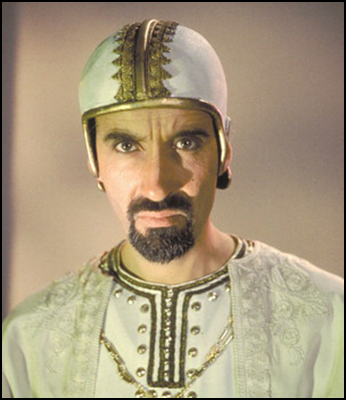
Never mind all that — as of right now, I consider myself more than amply compensated for the aforementioned omissions, because someone who was born in 1922, someone old enough to have volunteered to fight for the good guys in the Winter War when Stalin sought to swallow Finland, is now going to enhance one of the most important heroic fantasy/popular culture events of 2007. Yes, Christopher Lee, whose courage was once tested in a different way than had been the case from 1939-1945 when he approached Tolkien in an Oxford pub, who for decades was in the habit of rereading LOTR every year, has recorded the audiobook of that “new” bestseller The Children of Húrin. Habemus Papem!
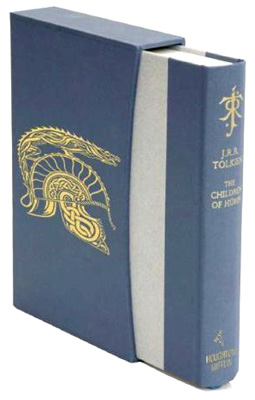
Accounts differ as to whether Lee has forgiven Jackson for being snipped from the theatrical release ROTK, but it hardly matters now; he’ll have this epic all to himself. What’s more, doing the Húrin honors will be a promotion of sorts, from the Sauron-imitating Saruman to the Dark Lord Sauron himself imitated, the only figure in Western literature capable of going one-on-one with Milton’s Satan:
‘I am the Elder king, Melkor, first and mightiest of all the Valar, who was before the world, and made it. The shadow of my purpose lies upon Arda, and all that is in it bends slowly and surely to my will. But upon all whom you love my thought shall weigh as a cloud of Doom, and it shall bring them down into darkness and despair. Wherever they go, evil shall arise. Whenever they speak, their words shall bring ill counsel. Whatsoever they do shall turn against them. They shall die without hope, cursing both life and death.’
Take it as an indication of the midnight magnificence of The Children of Húrin that every single thing Melkor/Morgoth promises in this scene comes to pass, and yet the human heroism, the conviction that even as the last candle sputters out it is still well worth cursing the surrounding darkness, remains shieldwall-obdurate. The Battle of Maldon-poet’s words Hige sceal à¾e heardra, heorte à¾e cenre, / mod sceal à¾e mare, à¾e ure mgen lytlaà° (Thought shall be the harder, heart the keener, / Courage the greater, as our might lessens) were enshrined by Tolkien as the “theory of courage, which is the great contribution of early Northern literature,” and Lee is supremely qualified to do full justice to the motif as it plays out in a North before the North.
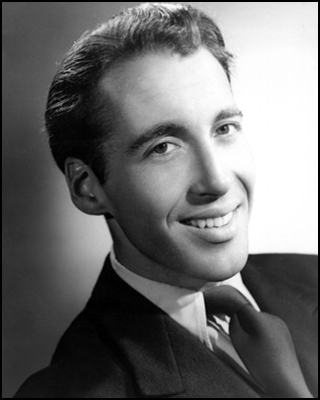
Were that not enough, the actor will be playing not only Morgoth but also Glaurung, the Father of Dragons — here’s hoping for the most draconian draconitas ever to Worm its way into the mass media:
‘Evil have been all your ways, son of Húrin,’ said he. ‘Thankless fosterling, outlaw, slayer of your friend, thief of love, usurper of Nargothrond, captain foolhardy, and deserter of your kin. As thralls your mother and your sister live in Dór-lomin, in misery and want. You are arrayed as a prince, but they go in rags. For you they yearn, but you care not for that. Glad may your father be to learn that he has such a son: as learn he shall.’
Dragonfire could never sear nor serpent’s venom afflict as do Glaurung’s words to Túrin. Lee’s rendition should be an apotheosis of the Reese’s principle of two-great-tastes-that-taste-great-together.
I’ve never had any use for audiobooks before; way back before kindergarten, the big incentive to learn to read was dissatisfaction with being read to. Active beats passive and seeing, not hearing, is believing. Plus the listener is the prisoner of the performer’s pacing, whereas no buttons need be pushed to rewind on the printed page. But combine Christopher Lee and The Children of Húrin and my prejudice goes out the window. Which reminds me, at Amazon audiobooks of “Red Nails” and The Hour of the Dragon are apparently available from the mysterious Audio Realms, what’s the story on those? I could handle Liam Neeson or Seamus Heaney himself reading “The Dark Man,” Tommy Lee Jones assaying “The Horror From the Mound,” or Cormac McCarthy, the creator of the most terrifying character in all of Southwestern weird fiction/Frontier Gothic, honoring “The Valley of the Lost.” Our own [redacted] has already proven himself the spitting, or side-splitting, image of Steve Costigan. With Beowulf and Grendel and 300 under his belt, Gerard Butler could easily sell “The Lord of Samarcand,” especially Donald MacDeesa’s lines. Or if Butler wanted to try a Conan story, a Cimmerian with a brogue or a burr instead of a “Vee Villy Vinkel” mistreatment of the letter “w” is long overdue. For “The Hyborian Age,” (yes, the entire essay) why not a narrator as remote and panoptically perspectived as a reconnaissance satellite, an implacable female narrator suggestive of none other than Clio, the Muse of History? Not Cate Blanchett, although her crucial contribution to the prologue of Jackson’s The Fellowship of the Ring is the obvious model, but perhaps Helen Mirren…Can Howard’s sound and fury be effectively rendered as sound? Much to think on here.
